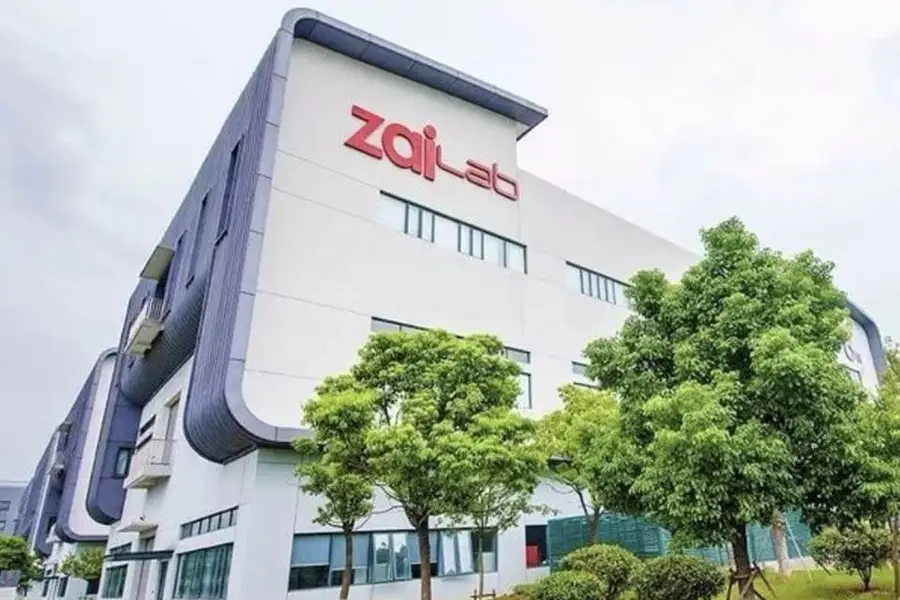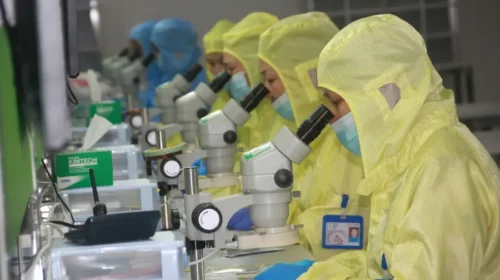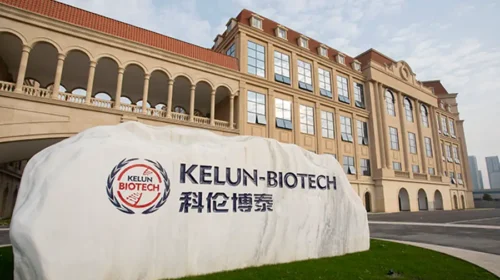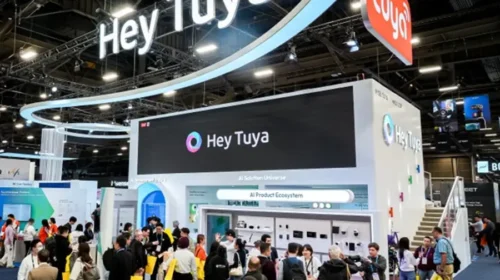Zai Lab under pressure over clinical results and rival drugs

Shares in the Chinese biopharma firm have been pounded by disappointing trial results for a cancer drug and sluggish sales of its existing products
Key Takeaways:
- The survival benefits for a new gastric cancer drug, bemarituzumab, were weaker than expected in the final analysis of a Phase Three trial
- The news unsettled investors, coming after Zai Lab’s latest quarterly earnings also missed the mark
By Molly Wen
The “Rule of 10” is a widely accepted yardstick within the biopharma industry for the chances of commercial success.
According to the adage, it takes around 10 years and $1 billion to develop a viable innovative drug, but only around 10% of prospective products make the grade, with the rest falling by the wayside.
Clinical disappointments may be a common risk factor in drug development, but they still have the power to rattle investors.
When Zai Lab Ltd. (9688.HK; ZLAB.US) issued a short statement saying that one of its core products had suffered a Phase Three setback, the news punctured some of the high hopes that had built up around the drug, sending the firm’s Hong Kong-listed shares into a tailspin.
The trigger for the sell-off was an analysis that showed weaker than expected survival benefits for the gastric cancer drug bemarituzumab, when used in conjunction with chemotherapy. Zai Lab announced on Sept. 3 that its partner Amgen Inc. (AMGN.US), the study’s sponsor, had found the scale of the benefit had “attenuated” compared with interim trial results.
As a result, Zai Lab said it intended to wait for data from another trial in which the product is combined with an immunotherapy drug, nivolumab, as well as chemotherapy, before making any regulatory filings. Those findings are not due until the end of the year or the first half of 2026, implying at least a six-month delay in filing for approval to market the drug.
The drug in question, bemarituzumab, is a monoclonal antibody targeting the biomarker FGFR2b. Zai Lab licensed the drug from Amgen in 2017, paying $5 million upfront and up to $40 million in potential milestone payments for exclusive rights in Greater China. In the interim trial, bemarituzumab became the world’s first FGFR2b inhibitor to demonstrate a significant survival benefit for a subset of gastric cancer patients in a randomized Phase Three study. Gastric cancer is among the most prevalent malignancies worldwide, with a particularly high frequency in China. The overall five-year survival rate for Stage Four patients is less than 10%.
The promising outcome from the initial trial had boosted market expectations for the drug, one of Zai Lab’s most closely watched assets. On the day after Zai Lab delivered the trial update, its Hong Kong shares opened down nearly 7%, sank to a three-month low of HK$22.52 in intra-day trade and closed with a loss of 11.99%.
The pain was not confined to Zai Lab alone. The innovative drug sector had built up gains in a broad-based rally and many biotechs suffered corrections on the same day, with Hengrui Pharma (1276.HK; 600276.SH) and Ascletis Pharma (1672.HK) among the stocks that fell more than 5%.
Earnings miss the mark
In Zai Lab’s case, investor concerns extend beyond pipeline setbacks, focusing also on the pace of growth from core products, based on quarterly earnings released in early August. The company’s revenues rose 9% in the second quarter of 2025 to $110 million, while its net loss shrank by a third to $89.2 million. The company reaffirmed its full-year guidance of between $560 million and $590 million in revenues but landing in the specified range could be a stretch. Huatai-PB Securities International described it as a demanding target, requiring second-half growth of 63% to 77% from the same period a year earlier.
The market generally judged Zai Lab’s earnings as undershooting expectations. Gross margin fell 4.3 percentage points to 60.6%, mainly due to weak sales of its two core products: Vyvgart (efgartigimod alfa-fcab) for immune disorders and Zejula (niraparib), which is used against ovarian cancer. Zejula is Zai Lab’s most lucrative drug, but sales fell 17.1% from the preceding quarter and 8.8% year on year to $41 million. The company blamed the drop on a market influx of similar drugs, stoking price competition and eroding Zejula’s market share.
The other key product also failed to satisfy market hopes. Second-quarter sales of Vyvgart rose 14.5% to $26.5 million, below the expected increase of 20% to 25%. A further blow could also be looming, as a rival drug from RemeGen Co. Ltd. (688331.SH; 9995.HK) is expected to qualify for coverage under China’s medical system. If Remegen’s telitacicept is successful, it would intensify competition and erode Vyvgart’s current pricing advantage under the drug reimbursement scheme.
Zai Lab has pioneered the approach of buying rights to promising drugs from their original developers, but regulatory and pricing pressures are narrowing profit margins on new treatments, forcing a strategy rethink. The company is now moving towards self-developed R&D. Its leading candidate under development is ZL-1310, an antibody-drug conjugate targeting the DLL3 protein as a treatment for small-cell lung cancer. It has been granted fast-track status by U.S. drug regulators and is expected to enter pivotal studies in 2025, with potential approval in 2027.
As of June 30, Zai Lab held around $830 million in cash and cash equivalents, providing sufficient resources for both investment and R&D in the second half of the year. The company currently trades at a price-to-sales ratio of about 8 times, compared with 22 times for Everest Medicines Ltd. (1952.HK), another biotech with a license-in focus. The valuation gap reflects market caution about the outlook for Zai Lab. The company has predicted it could turn a profit by the fourth quarter, as operating losses narrow. Its progress will remain a key focus for investors.
To subscribe to Bamboo Works free weekly newsletter, click here






